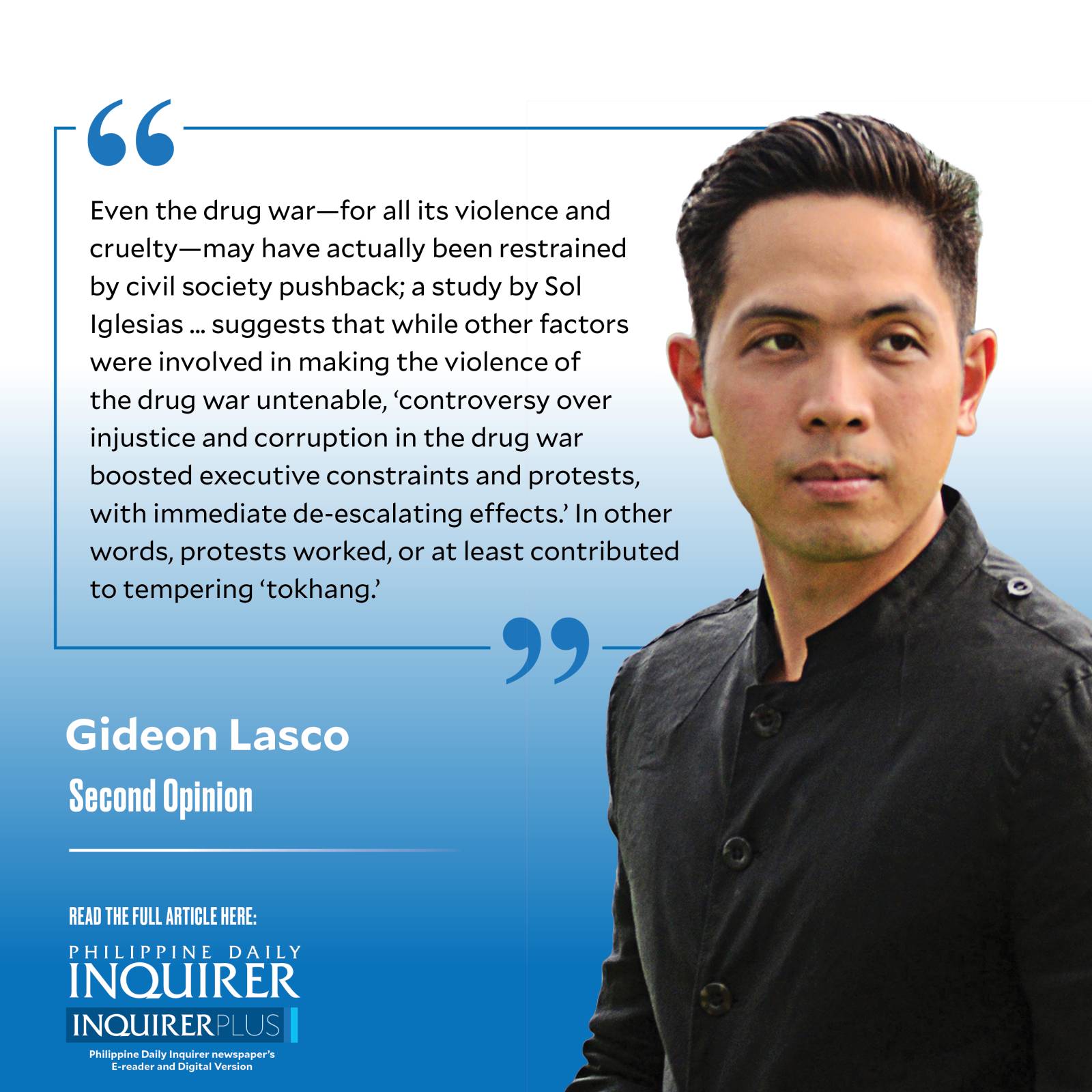Can we do anything?
A serious question: Can we do anything in the current political landscape that advances our nation’s interests, and improves our people’s lives, without replacing the politicians in power?
Some will answer in the negative, saying that at the end of the day, it still is the President and his allies who call the shots; they decide what programs to prioritize (e.g., Maharlika Investment Fund; billions in “intelligence funds”), they decide which people to appoint (e.g., Larry Gadon), and they decide how much to allocate for which projects (e.g., millions for a logo and slogan).
Article continues after this advertisementBut if the logical conclusion of this train of thought (i.e., that nothing can be done) is giving up on our country and/or blaming those who voted for the current government (neither of which are productive), then the alternatives are worth considering.
In helping us think of the possibility of these alternatives, the Rodrigo Duterte years are insightful. On one hand, Duterte managed to impose his will on many issues, like the war on drugs, the clean-up of Boracay, the installation of the Manila Bay dolomite beach, the shutdown of ABS-CBN, the quo warranto removal of Chief Justice Ma. Lourdes Sereno. Many of our pandemic policies were largely decided by fiat, and for over a year, our very lives were dictated by Duterte’s whimsical decisions.
On the other hand, the Duterte years were also characterized by social support. As Charmaine Ramos, a development studies scholar and lecturer at Leiden University, wrote, “in his first three years, Duterte has overseen the highest levels of social spending witnessed in the three decades beginning in 1986”; beyond just continuing the Pantawid Pamilyang Pilipino Program, he oversaw its institutionalization by signing Republic Act No. 11310.
Article continues after this advertisementMoreover, his term saw further legislative reforms that, albeit imperfect, were actually progressive and holds the potential to be pro-poor if implemented properly, like the Universal Health Care law which guarantees access to health care to every Filipino; the Universal Access to Quality Tertiary Education Act (RA 10931) which institutionalizes free tuition in state universities and colleges; the Mental Health Act (RA 11036) which affirms mental health as a right and provides services accordingly; and the Philippine HIV and AIDS Policy Act of 2018 (RA 11166) which expanded access to HIV testing and treatment.
Duterte did not write these bills, but he didn’t oppose them either—even if the people behind those bills were his critics (e.g., Risa Hontiveros for RA 11166; Leila de Lima for RA 11310). These initiatives, in other words, managed to transcend the intensely polarized politics, in ways that benefited, and still benefits, the people.
Of course, as Ramos also rightfully and very crucially points out, such reforms and legislative measures were used “to legitimize a conservative and authoritarian political order,” ultimately “foreclosing the possibilities for social policy reforms to form the seedbed for transformative change”; it is for this reason that I refuse to view presidencies, not just Duterte’s, as a simplistic weighing of “good things” and “bad things” as though the former can automatically outweigh the latter.
Another important point about the Duterte administration was that the presidential prerogative had limits, even with the popularity the former president enjoyed throughout his term. His push for federalism and Charter change, for instance, did not prosper despite the massive resources poured into this effort; neither did his short-lived dream of having Christopher “Bong” Go succeed him.
At the local level, some initiatives likewise did not succeed despite political support from the highest levels of power; for instance, the defeat of the plebiscite dividing Palawan into three provinces, even after Duterte signed that measure, RA 11259, into law. Conversely, some mayors managed to pursue alternate approaches to drugs, COVID-19, and other issues, making me feel—sometimes, at least—that if there’s hope in our country, it lies in local government.
Even the drug war—for all its violence and cruelty—may have actually been restrained by civil society pushback; a study by Sol Iglesias of the University of the Philippines Diliman’s Department of Political Science suggests that while other factors were involved in making the violence of the drug war untenable, “controversy over injustice and corruption in the drug war boosted executive constraints and protests, with immediate de-escalating effects.” In other words, protests worked, or at least contributed to tempering “tokhang,” particularly in the aftermath of the killing of Korean businessman Jee Ick-joo and more significantly the murder of Kian Delos Santos.
Might there be space for such pushes and pushbacks today; spaces that we can claim alongside the longer-term goal of transformative change?
Not if we think of electing leaders as the singular exercise of democracy, or the singular vehicle of hope! Indeed, in at least some areas, I believe the answer is yes—and in one of my next columns, I will try to sketch some of them.
—————-
glasco@inquirer.com.ph

















